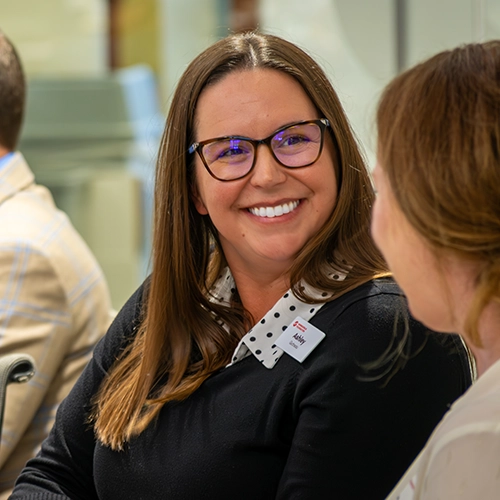5 Things to Know about Donor Advised Funds

Philanthropic Advisor Kevin Rockwell offered tips on charitable giving at a recent conference for estate planning attorneys and other advisors.
At the Minneapolis Foundation, Kevin Rockwell works with individuals and families to help them bring their values to life through charitable giving. An estate planning attorney by training, he also understands how legal advisors approach their work as they counsel clients on trust and estate planning, wealth management, and other matters.

Kevin recently moderated a session on charitable giving at Minnesota CLE’s 2024 Probate & Trust Law Section Conference. He and co-panelists Jesse Sheedy, a senior attorney at Dorsey & Whitney, and Kelly Q. Webster, Senior Program Officer and General Counsel at The Richard M. Schulze Family Foundation, gave an overview of giving vehicles ranging from charitable lead trusts and charitable remainder trusts to private family foundations and Donor Advised Funds.
Kevin’s remarks focused on how Donor Advised Funds can empower clients to pursue and achieve charitable goals. For many clients, establishing a Donor Advised Fund at a community foundation creates an ideal partnership for philanthropy that is purposeful, strategic, and responsive to community needs.
Here are five takeaways from his comments:
Estate planning presents unique opportunities to do good. Anyone in this field knows that estate planning can have an enormous impact on the lives of your clients and their families, sometimes many generations down the line. Your impact doesn’t have to stop there. As advisors serving estate clients, you stand in a position to help those who are charitably inclined get more resources in the community. However, the reality is that clients will look to you to get the conversation started. Just as you likely strive to do pro bono work, asking clients about charitable giving should be part of your practice, too.
Donor Advised Funds are often a great fit for clients who value flexibility and convenience. These funds offer incredible ease in terms of set-up, oversight, and general administration. Unlike private foundations and charitable trusts, a Donor Advised Fund is not a separate tax filer. That makes them very accessible for clients who want to include charitable giving in their plans without big barriers to entry.
A Donor Advised Fund has low start-up costs and can be established by creating a fund agreement with a sponsoring organization like the Minneapolis Foundation, opening the account, and making an initial contribution.
Another benefit of Donor Advised Funds is their administrative convenience. This is especially helpful for clients and their tax preparers during tax season, because clients only need to retain one receipt rather than many receipts from gifts to many charities. Instead, they can focus on the aspects of their charitable giving they care about most: The difference they want to make in the community.
Think of a Donor Advised Fund as a charitable investment account. A client contributes an asset to a Donor Advised Fund—which could be cash, stock or some other illiquid asset—takes an immediate tax deduction, and avoids capital gains. Then the asset in the Donor Advised Fund may be invested, and the client or their successors may recommend grants to qualified charities over time. Because invested Donor Advised Fund assets grow tax-free, your clients may ultimately have more to give and be able to make a bigger impact in the community.
They’re tax-smart giving tools. From a tax savings perspective, contributions of cash to Donor Advised Funds are deductible for income-tax purposes up to 60% of AGI with a 5-year carry forward. Contributions of long-term appreciated non-cash assets are deductible up to 30% of AGI with a 5-year carry forward. These are higher deductibility limits than private foundations because Donor Advised Funds are considered public charities. Again, it is generally much more beneficial for clients to donate long-term appreciated non-cash assets, because they may deduct the fair market value of the contributed asset and avoid the capital gains tax incurred if they had sold the asset. So that’s a double tax benefit, allowing clients to dedicate more of their charitable resources to the causes they’re passionate about.
Community foundations are experienced Donor Advised Fund partners. By working with a community foundation, you give your clients access to a wealth of local knowledge and expertise on community issues, as well as professionals who can help them research and vet charities that support their mission. The Minneapolis Foundation’s team works with estate planning attorneys and other advisors to help clients create and implement giving plans that go far beyond writing checks. We host convenings where your clients can learn about community needs and connect with other leaders, share opportunities to take action on issues they care about, and facilitate conversations for families who want to include children or other loved ones in their giving. This kind of philanthropy isn’t transactional; it’s transformational.
We’d love to partner with you to enhance your practice. If you have questions about charitable giving or a client who might benefit from our services, please reach out to Chris Beach, our Senior Vice President of Philanthropic Services, by filling out this form.

